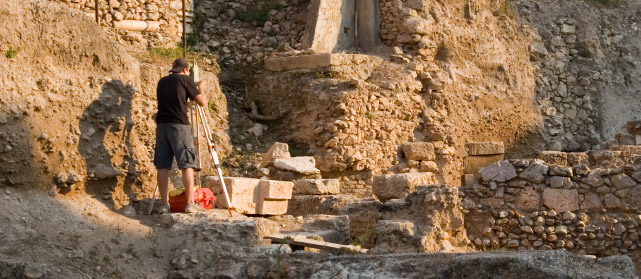|
Directing archaeological projects requires unique professional tools provided by experienced personnel. Below is a typical timetable:
Planning Stage
As mentioned above, meticulous planning, accompanied by thorough research, may help save money and time.
Budgeting the Expected Expenses
As mentioned in the area of consultation, archaeological expenses are not a force majeure, and can be budgeted fairly well at the planning stage.
Negotiating with Israel Antiquities Authority Personnel
The Antiquities Law gives the Israel Antiquities Authority Director a great amount of leeway (some say too much). It is thus important for an experienced Kedem consultant, who is familiar with the relevant people, their professional background and their capabilities, to negotiate in an attempt to navigate the Authority's demands. The consultant will gather data about precedents in the Authority's policy concerning similar cases and can assemble a professional and detailed report for the Authority personnel, thus assisting them in reaching a decision which takes planning needs into account.
Preparing the Site for Excavations
From the planners' perspective, the success of an archaeological excavation is measured in reducing the cost and duration of the excavations, and in decreasing the excavation's "damage" to the project. Correct preparation of the excavation site, based on a thorough study of the area's characteristics, infrastructures, seasonal conditions and needs of the project, will allow the planner to minimize the expected damages of the excavation.

Publishing Tenders to Choose a Contractor to Run Archaeological Excavations and/or Conservation and Reconstruction
The wording of tenders must be clear as to expectations and prerequisites Extra demands that will make it difficult and even prevent some of the contenders from participating in the tender, as well as making the offers expensive without justification, should be avoided. Most of the archaeology tenders are published by engineering project managers who were not knowledgeable about archaeological procedures.
Supervising the Excavations
Following the tender, it is important to have a Kedem consultant accompany the work itself. The consultant can
supervise its progress and make sure the agreed-upon requirements are carried out. The consultant can also resolve unexpected developments, which are inevitable when dealing with archaeology.
Reviewing the Bills
The archaeology consultant can check and authorize intermediate and final bills prepared by the holder of the tender.
Authorizing Completion of the Work
Upon completing the archaeological work, Kedem's consultant can confirm that the tasks were carried out as required. The development work can then be resumed by the contractors as agreed.
|






